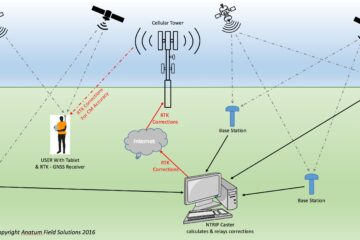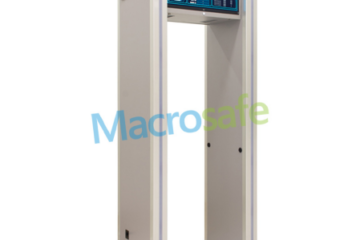In the dynamic landscape of scientific research, collaboration is the cornerstone of innovation. Enter Totally Science Gitlab, a revolutionary git-based repository manager that is redefining the way researchers and developers work together on code-intensive projects. This cutting-edge platform merges the power of version control with collaborative prowess, creating a seamless environment for teams to thrive.
GitLab’s reputation as a versatile version control platform precedes it. Stemming from the world of software development, GitLab goes beyond a simple code repository; it’s a complete collaborative ecosystem. Whether you’re a geneticist analyzing DNA sequences or an astrophysicist simulating cosmic phenomena, Totally Science Gitlab provides the ideal environment for streamlined teamwork. With features ranging from integrated wikis for documentation to robust issue tracking, this platform is designed with the complexities of scientific endeavors in mind.
Contents
Empowering Scientific Projects: The Role of Totally Science Gitlab
Imagine a world where researchers across the globe can seamlessly contribute to a single project, tracking their changes, suggesting improvements, and ensuring the quality of the code. Totally Science Gitlab makes this vision a reality. By fostering a culture of shared expertise, it empowers scientific projects with the combined brilliance of multi-disciplinary teams. Scientific collaboration tool: Check. Research project management: Double-check.
Benefits of Using Totally Science Gitlab
Why should scientists and researchers embrace Totally Science Gitlab? The reasons are as profound as they are pragmatic. This collaborative code development platform offers an exceptional way to manage repositories, ensuring that every iteration is accounted for and organized. With its integrated wiki, researchers can effortlessly document processes, facilitating knowledge sharing across teams and disciplines. But it doesn’t stop there – this cloud-based development platform paves the way for remote collaboration, enabling researchers to contribute regardless of their physical location.
How to Use Totally Science Gitlab
Getting started with Totally Science Gitlab is remarkably straightforward. Begin by creating a project within the platform – a digital workspace that encapsulates all files and code pertinent to your application. Whether it’s a public endeavor accessible to all or a private initiative for a select group, the platform caters to your needs. Collaboration is seamless: Invite collaborators, open the door to constructive feedback, and collectively drive the project toward success.
Different Features of Totally Science Gitlab
Delving deeper, it’s evident that Totally Science Gitlab isn’t merely a repository manager; it’s a suite of advanced tools. Code reviews come to life as developers comment on each other’s code inline, creating a vibrant discussion thread for every merge request. Issue tracking takes on new dimensions, with the ability to link issues to merge requests, ensuring that resolutions are synchronized with code changes. Activity feeds provide an overview of progress, keeping everyone informed about who’s contributing what and when.
Some of the features of Totally Science Gitlab include:
- Code Reviews: Streamlined peer review that enhances code quality.
- Issue Tracking: Robust bug tracking and management for optimized software.
- Activity Feeds: Real-time updates on project activity and contributions.
- Continuous Integration: Automated testing and deployment pipelines for efficiency.
- Wikis: Integrated documentation for seamless knowledge sharing.
Examples of Projects Using Totally Science Gitlab
Consider the Beaker Project, a fictional initiative that utilizes Totally Science Gitlab for managing and sharing scientific data. On the real-world front, the Genome Commons Project, with its emphasis on genomic data, finds a seamless solution in the platform’s capabilities. Meanwhile, the DataONE Project harnesses the power of Totally Science Gitlab to streamline data repository management, catalyzing data discovery and reuse.
Streamlining Research Development: Totally Science Gitlab’s CI/CD Pipelines
In the realm of scientific coding, efficiency is paramount. This is where Totally Science Gitlab’s Continuous Integration (CI) and Continuous Deployment (CD) pipelines shine. Automating the build, test, and deploy processes, these pipelines ensure that every code change undergoes rigorous testing before reaching production. This not only saves time but also guarantees the integrity and reliability of scientific software, contributing to more accurate results.
From Bugs to Breakthroughs: Issue Tracking with Totally Science Gitlab
Bugs are the bane of any developer’s existence, and scientists are no exception. Totally Science Gitlab’s issue tracker proves to be a formidable ally in this battle. Developers can log bugs, feature requests, and TODOs, assigning them to specific team members and setting due dates. The integration of issues with merge requests ensures that bugs are resolved in tandem with code changes, leading to higher-quality software.
Knowledge Sharing Made Easy: Utilizing Totally Science Gitlab’s Integrated Wiki
Research thrives on knowledge sharing, and Totally Science Gitlab’s integrated wiki serves as a repository of wisdom. Scientists can document code, methodologies, and project intricacies, allowing team members to access and contribute to the collective understanding. This collaborative documentation promotes transparency, accelerates onboarding, and preserves institutional knowledge for the long term.
Collaboration Unleashed
Code reviews are the crucible where ideas are refined and code quality is ensured. Totally Science Gitlab facilitates this essential process with finesse. Developers can review each other’s code inline, leveraging the built-in diff viewer to provide context-rich comments. The discussion thread for each merge request becomes a treasure trove of insights, ensuring that feedback is not only given but also acknowledged and acted upon.
Real-world Applications
The real-world applications of Totally Science Gitlab are as diverse as scientific disciplines themselves. Imagine a team of climate scientists collaborating on a model to predict the effects of climate change. With the platform’s collaborative features, code management, and integrated tools, such a team can advance their research in unison, ensuring that every line of code is an investment in the future.
Open Source Advantage
Open source is more than a philosophy; it’s a powerful way of driving progress. Totally Science Gitlab embodies this spirit, offering open-source code management that can be tailored to the needs of researchers. This not only fosters collaboration but also ensures that scientific advancements are shared openly, accelerating the pace of discovery across the scientific community.
Effortless Data Management: Totally Science Gitlab for Genomic Projects
In the realm of genomics, data is both vast and intricate. Totally Science Gitlab rises to the challenge, offering a secure and organized platform for managing genomic data. Whether it’s storing DNA sequences, tracking mutations, or collaborating on advanced analyses, the platform’s capabilities empower geneticists to focus on the science, confident that their data is managed with precision.
Building the Future of Research
Academic institutions are hubs of innovation, and Totally Science Gitlab serves as a digital laboratory where ideas flourish. Professors, researchers, and students can collaborate on research projects, contributing code, simulations, and analyses to a central repository. This not only fosters interdisciplinary collaboration but also prepares students for the collaborative nature of modern scientific work.
Case Study: The Beaker Project’s Success with Totally Science Gitlab
The fictional Beaker Project is a shining example of how Totally Science Gitlab transforms scientific endeavors. With its integrated tools, version control, and collaborative features, the project’s researchers seamlessly collaborate on data analysis and algorithm development. The result? Accelerated discoveries and breakthroughs that shape the future of scientific inquiry.
Breaking Down Barriers: How Totally Science Gitlab Transforms DataONE Project
The DataONE Project, a real-world initiative, embarks on a journey of data management and sharing with Totally Science Gitlab. By leveraging the platform’s data versioning, documentation, and collaborative capabilities, DataONE not only manages data repositories efficiently but also fosters data reuse and collaboration among researchers across disciplines.
Conclusion
In the realm of scientific discovery, collaboration is the driving force. Totally Science Gitlab transcends traditional code repositories, ushering in a new era of collaborative coding where researchers unite their expertise and insights to tackle humanity’s most pressing questions. From managing code to tracking bugs, from code reviews to continuous integration, this platform streamlines the scientific process, ensuring that each line of code is a step toward groundbreaking discoveries. Embrace the future of collaborative coding with Totally Science Gitlab, where innovation knows no bounds.
Stay in touch with Washinton Greek to explore more interesting topics.



